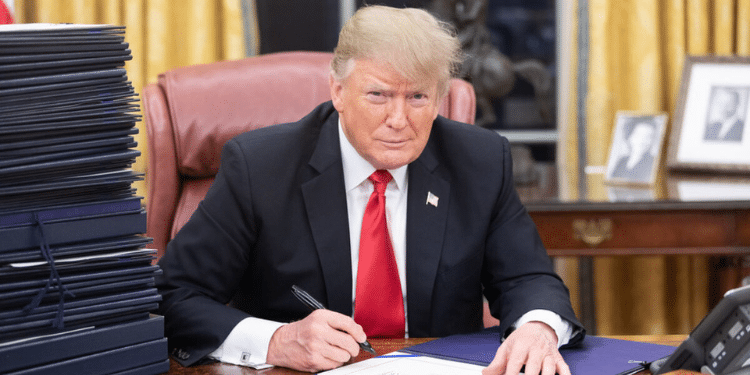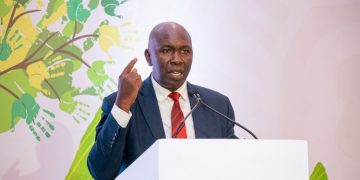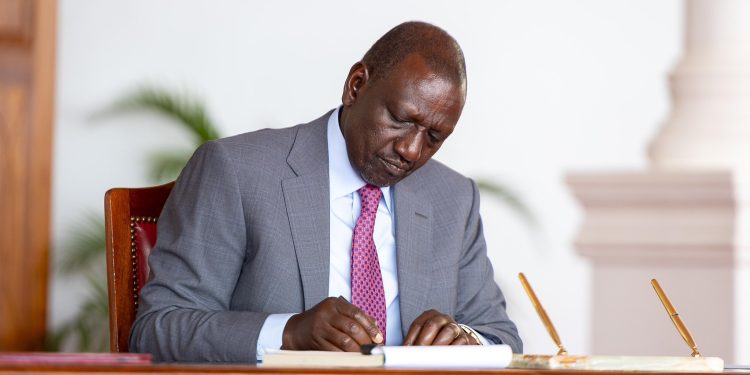Youth empowerment initiatives have gained traction worldwide, as they provide young people with the requisite skills, the ability to engage with confidence, and the opportunity to participate in decision-making, thereby contributing to societal development. The United Nations Children’s Fund (UNICEF) has, over the years, been active in promoting the inclusion of youth in the global development agenda. Meanwhile, other agencies, such as Asante Africa and The Youth Cafe, have implemented initiatives that provide skills and offer opportunities to the youth.
It is against this backdrop that the government of Kenya has been fully involved in matters affecting the youth, which range from unemployment, underemployment, drug and substance abuse, and lack of opportunities to eke out decent livelihoods.
There is no gainsaying that when the youth demographic is empowered, they are well-positioned to be productive economically and contribute to enhancing the country’s economic stability and reducing poverty levels.
Empowering Youth in Kenya
Development partners, especially the World Bank through the Kenya Youth Development Project, and the African Development Bank, have been at the forefront in offering support to businesses run by young people.
The government of Kenya established the National Youth Opportunities Towards Advancement (NYOTA) fund, which supports youth-owned businesses.
In 2006, the Youth Enterprise Development Fund was established, and later in 2007, it was formally transformed into a state corporation, with the mandate of providing financial and business development support to businesses owned by the youth.
Also Read: Govt Answers the Top 5 Questions Kenyans Are Asking About NYOTA Project
Over the years, the fund has achieved significant milestones in realizing its mandate, but it has also faced widespread headwinds, including doubts about its ability to reach the youth in business across the country.
In December 2024, the government announced that the Youth Enterprise Development Fund would be replaced by the Youth Fund. YF was to take over the YEDF’s obligations and assets, and its mandate was to provide financial resources, including loans, grants, and other financial services, to facilitate the youth to engage in entrepreneurship and innovation initiatives that guarantee sustainable livelihoods.
In June 2025, the government unveiled a plan to provide Ksh50,000 to 70 young people in each of the 1,450 wards across the country, through a Ksh5 billion Youth Fund being undertaken in partnership with the World Bank.
Ruto mulls Youth Bank
In August 2025, during the International Youth Day celebrations in Kakamega County, President William Ruto announced plans to roll out a Youth Enterprise Investment Bank, which would be capitalized at Ksh 9.75 billion. The bank’s mandate would be to boost youth-led businesses across the country.
Investment banks, by their very nature, are meant to offer advisory and financial services for big-ticket transactions, including initial public offerings, assisting government and corporations to raise money through the sale of stocks or bonds, acting as intermediaries and advisors to companies on mergers and acquisitions, and, in rare cases, investment banks offer retail banking services.
A full-fledged investment bank with a focus on supporting youth-led businesses represents a significant step by the government to ensure that young people in business are fully equipped to navigate the environmental dynamism in today’s business landscape.
Duplication and lack of focus
However, although all the initiatives are well-intentioned for the youth, there appears to be so much happening at the same time, and the target population for these noble programs may be lost in the labyrinth of multiplicity and duplicity of the initiatives. A deliberate and focused approach to implementing the initiatives could suffice if they are to benefit more young people.
Many questions linger regarding some of the initiatives, such as why there would be a need to change the name from Youth Enterprise Development Fund to Youth Fund, yet the mandate remains unchanged. What would be the criteria for choosing 70 young people to be supported per ward across the country, without the process being abused by those in charge of selection?
Also Read: State House Breaks Silence as Youth Expose Ruto’s Fake Empowerment
In addition, will the envisaged investment bank optimally serve its mandate, given that youth-led businesses may not necessarily create sufficient critical mass for the investment bank to warrant expansion into offering retail banking services? Will the investment bank also focus on other market segments? Would it have been better for the government to re-engineer one or more commercial banks where it holds a majority stake, and repurpose their scope to undertake the youth empowerment initiatives instead of a brand-new entity?
Moreover, given that the government is a major player in the banking sector, couldn’t it have been easier to influence moral suasion as a policy, where commercial banks would be obligated to focus more on youth-led businesses than they currently do?
Business Environment
For all the initiatives to bear fruit, the government must dedicate efforts to creating a suitable and business-friendly environment with targeted policies that are geared towards addressing aspects of fiscal policy, streamlining regulatory frameworks, and reducing unnecessary bureaucracy, especially when it comes to the registration of youth-led businesses.
There should be clear mechanisms for universal access to funding, with a succinct delineation between grants with attendant criteria for access and affirmative loans with their qualification benchmarks, preferential interest rates, and flexible repayment plans.
The government must place greater emphasis on policies that offer financial incentives, such as tax breaks and start-up subsidies, along with a corresponding grace period that facilitates the seamless establishment of newly set-up businesses by young entrepreneurs.
With the widespread adoption of technology across all spheres of life, the government must prioritize digital infrastructure that enhances the uptake of youth-led businesses, with entrepreneurship support services being easily accessible.
It therefore goes without saying that adopting a concentric approach to youth empowerment through entrepreneurship and skills development holds the key to emancipating the many educated youth currently mired in a state of despondency due to a lack of opportunities in formal employment and a favourable environment for engaging in business.
The multifaceted approaches, lacking a coherent coordination mechanism, provide opportunities for abuse by unscrupulous officials running the programs, and deserving young people are likely to miss out, ultimately negating the government’s noble efforts.
This article was written by Dr. Patrick Dan Mukhongo, a Project Management Consultant.
Follow our WhatsApp Channel and X Account for real-time news updates.






















































![Senator Allan Chesang And Chanelle Kittony Wed In A Colourful Ceremony [Photos] Trans Nzoia Senator Allan Chesang With Channelle Kittony/Oscar Sudi]( https://thekenyatimescdn-ese7d3e7ghdnbfa9.z01.azurefd.net/prodimages/uploads/2025/11/Trans-Nzoia-Senator-Allan-Chesang-with-Channelle-KittonyOscar-Sudi-360x180.png)




















“Thank you for writing this insightful article;